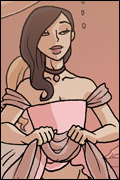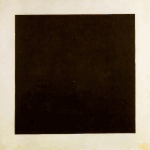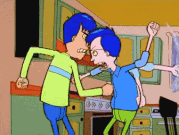|
If anyone's interested, I decided to take a crack at a PBP of Eclipse. It's going to be four-player, and new players and veterans are both welcome to toss their hats in, though I'm going to be a bit of an rear end about consistent posting, since it'd be far too easy for everything to get dragged down.
|
|
|
|

|
| # ? Jun 10, 2024 02:26 |
|
Magnetic North posted:Care to elaborate on how you did that? I took a bunch of cards from the top (cheap) row early on, then took chips I didn't need but had them linger in front of me, never to return for anyone's else use because I was using the buy power of those cheap cards so often. I ended up getting all but one of those royalty (or whatever they are called, the ones you get for having so many cards). It was my first time playing and I just trusted that the guy who owned the game knew the rules. He never corrected me so I assumed I didn't break any rules. Servoret posted:You know that there's a hand limit for chips, right? The first time I played we had someone who crashed the economy of the game by hoarding because we didn't realize that, but I haven't seen it since we started playing by the rules. Yeah, I followed that, but between the three other players, the chips I kept made their ability to buy really slow. Sometimes it was near impossible for them to get enough chips because everyone else had chips they couldn't spend right away too. It might have been the luck of the draw for what cards were out. No idea, it just worked for me that one time. enigmahfc fucked around with this message at 15:55 on Aug 27, 2014 |
|
|
|
quote:At one point we figured out that it's a good idea to reject a team regardless of whether or not you like it; if it fails you look good, and if it succeeds you just look cautious (since any halfway smart spy is going to support a good team at least sometimes). With tight play, votes should normally be close. If a person, say, never votes for an early team they're not on, that's easy to exploit (because you can see where it'll go, and you can manage your own votes based on who is making the 5th/forced proposal). In general, if teams are getting downvoted too much or too predictably, you LOSE information; downvotes (or upvotes) don't mean anything if people just always downvote. Really, that's just as poor of play as people just accepting everything. If someone persists, that should actually look like suspicious play (just as it would if they just blindly upvote everything). If you keep votes close, that means people are motivated to "vote honestly" more - and that's when you get information. The real trick, though, as mentioned by someone else above, is that you need to get Avalon. Because in base Resistance, your early votes really can't mean much even with very thoughtful play - there's just not that much information out there anyway. We always found the first couple rounds kind of bland in base Resistance. In Avalon, you get to the meat of things much quicker.
|
|
|
|
You don't *need* to get Avalon, you can add the roles into base resistance no problem as the portraits are unique. White haired dude is Merlin, trench coat guy is assassin, etc.
|
|
|
|
I'm sure this has been discussed before but, I'm curious about the consensus of randomness in board games. I know a lot of games are criticized for being too random, but most games have some level of chance. Should randomness in board games be avoided, or is there a right and wrong way to use it?
|
|
|
|
MildManeredManikin posted:I'm sure this has been discussed before but, I'm curious about the consensus of randomness in board games. I know a lot of games are criticized for being too random, but most games have some level of chance. Should randomness in board games be avoided, or is there a right and wrong way to use it? There's definitely a good way and a bad way to do it. Consider Dominion vs. Ascension as an example. The randomness of Dominion comes in your deck and what five cards you are going to draw (plus the cards that your opponents draw that might disrupt your hand). Part of the strategy of the game is thinning your deck to reduce the randomness and insure a steady engine. Ascension on the other hand has two major forms of randomness: what cards you will draw, like Dominion, and then what cards you're going to see in the center row. These two things together make the game a much more random affair, though still manageable in most cases if you know what you're doing. There's still going to be the inevitable "everything is monsters and I have no fight in my deck." This doesn't necessarily mean that Dominion is the better game because it is less random, but I think it at least reduces player frustration since you know what you're going to be capable of at any moment. There are other games where the randomness really hurts an otherwise really enjoyable game, like Eclipse's combat revolving around dice.
|
|
|
|
There's also a difference between randomness of choice and randomness of result - personally, it's usually more 'satisfying' to play a game where you have random choices with fixed results (a hand of cards) than a game with fixed choices and random results (rolling dice just to find out your action didn't work).
|
|
|
|
Time for the obligatory talk on randomness: https://www.youtube.com/watch?v=dSg408i-eKw
|
|
|
|
MildManeredManikin posted:I'm sure this has been discussed before but, I'm curious about the consensus of randomness in board games. I know a lot of games are criticized for being too random, but most games have some level of chance. Should randomness in board games be avoided, or is there a right and wrong way to use it? I don't think there's anyone who will say randomness should be straight up avoided. There are definitely different ways of using it though. Games with a high degree of randomness, where random chance has a great impact on the outcome of the game, should tend towards shorter. In longer games, the impact of randomness should diminish the further you are into it, and ideally, there should be ways to mitigate a long string of bad random results. One distinction between different kinds of luck that I like is pre-decision vs. post-decision randomness. Both kinds of randomness are exactly what they sound like. Pre-decision is like drawing a hand in Dominion, or rolling the dice in Catan. The random outcome occurs, and you are able to take the results into account for all of your decisions that turn. Post-decision is where you make a decision, and then a random element affects the outcome. The prime example of this is "roll x to hit". You are making a decision to attack, and then the outcome of the dice roll, the random element, determines whether you are successful are not. A more subtle example would be draw actions in Dominion. In playing something like a moat, you are making a decision to draw cards, without knowing exactly what they are. I learned about these things from attending Eric Lang's board game panel last year at FanExpo. I'm planning on going to his panel again this year (Friday). If any of you will be there, and want to meet up, I'll have a backpack with some forum emoticon pins.
|
|
|
|
MildManeredManikin posted:I'm sure this has been discussed before but, I'm curious about the consensus of randomness in board games. I know a lot of games are criticized for being too random, but most games have some level of chance. Should randomness in board games be avoided, or is there a right and wrong way to use it? This is a fun talk on the subject: https://www.youtube.com/watch?v=av5Hf7uOu-o From my personal point of view, I think luck in a game is only interesting if a) any outcome is also interesting because you get to see how the systems work together, and winning or losing don't have a lot of straight forward or boring paths, or b) if the length of the game or number of luck-based parts even out from sample size/opportunities. I know there are people here who argue strongly in favor of something like Dominions over Star Realms, because they don't like the randomness of options in SR--since, obviously, your 'plan' can't really work out if you aren't even sure what you're planning for, or what your opponent is doing. Dominions is set up so that there are a lot of different postures you can assume, and when you grab cards you're communicating to your opponents--the 'horizon' for the game is, essentially the entire game length or your own ability to concentrate and think ahead, just like chess. The randomness of the hand mechanic is pretty brilliant as a way to get a Risk-like uncertainty about your genuine resources, but still have an arc like Bridge where uncertainty decreases as a game progresses. But I've got the philosophy that playing a game with a horizon that's only limited by your own brain has a lot of limitations. If you play against someone who's had practice sorting odds and planning several moves ahead, games can be very one sided. It also tends to bog down when slow or conservative thinkers play against people who are either like taking risks or have a better handle on visualizing how the game structure works. What I'd compare it to is, as a kid I remember 2nd grade had us memorizing times tables. Just about every morning for a while we were given a random worksheet first thing, and it was a race to see who could finish it first. There was some kind of time limit to reign it in, and a prize if you finished first (I think just a sticker or whatever) and were still correct. I remember getting kind of miffed that I wasn't always the fastest at it. I wasn't the fastest because I felt like I got the 'point'--that is, if I had time, I could figure out how to multiply things--why get faster at it? It wasn't very interesting to me. Games that are completely plannable and measurable in that way feel like memorizing times tables. Because it's usually the case that some specific part of what you're memorizing isn't very interesting. Sometimes many parts of what you're memorizing aren't interesting. Once you master all of it, maybe trying to understand the options and choosing between them *is*, but, in general, a lack of pure luck puts you in this zone where you basically calculate until you run out of head space. A level of randomness preventing that level of planning helps move the game along and creates more interesting moments. You learn from making a mistake. The fact that the mistake might not be avoidable doesn't necessarily mean it didn't give you useful information--what's more important to me is that whatever is going on, it's going to give me another chance to try something new *soon*. So if that means putting a horizon of unknowable outcomes on your game, that's fine. It's kind of why I don't like M:TG/Hearthstone/whatever. To me, the idea is that the real 'game' is, having memorized all possible cards, you then start calculating the odds that some combination will happen to your opponent's hand depending on what you play. The horizon is huge because the set of cards is huge and the interactions are even larger. I would *much* rather have a game where the capabilities of pieces wasn't something can count on, so that when you play, you have to learn the intracacies as you go and plan around failure. Xcom really showcases this (even though it's a video game). The game is about trying to set up as much certainty as you can, when things aren't certain. Certainty is a commodity that you maneuver around. The Xcom thread in /games is pretty much non-stop talk about a mod called 'long war' now that is all about adding lots of layers of randomness along with layers of planning and options to try to improve your certainty, so that non-randomness is a kind of resource you want to expend at the right moment. Plus the game is designed to let you just play it *more* so that, over time, even if you get screwed, it's not that that was unfair--sure, it might be. But more importantly it's an opportunity for you to try to fight back and recover. TheCosmicMuffet fucked around with this message at 18:43 on Aug 27, 2014 |
|
|
|
MildManeredManikin posted:I'm sure this has been discussed before but, I'm curious about the consensus of randomness in board games. I know a lot of games are criticized for being too random, but most games have some level of chance. Should randomness in board games be avoided, or is there a right and wrong way to use it? It has it's place; it depends on what kind of game you are trying to make. "post-decision" randomness can add tension to a game and it can also smooth out a games skill curve. People that aern't super into board gaming might enjoy a game with post-decision randomness more because it lets them have a chance of winning without a lot of effort invested in mastering the game. The way I see it a game is a social activity first so the makeup of the group will decide what level of randomness is appropriate. A game with children or drunk people for example could benefit from a lot of chance.
|
|
|
|
unpronounceable posted:
I was thinking about this, I've heard people criticize Seasons for being to luck based but I think having the options available make it fairly easy to work around without feeling like a victim of fate.
|
|
|
|
Spincut posted:There are other games where the randomness really hurts an otherwise really enjoyable game, like Eclipse's combat revolving around dice. Eclipse lets you choose how many dice you roll and (to some degree) the number you need to roll. Obviously there is some luck, but you can calculate when an attack will be safe.
|
|
|
MildManeredManikin posted:I was thinking about this, I've heard people criticize Seasons for being to luck based but I think having the options available make it fairly easy to work around without feeling like a victim of fate. Eh, I mostly didn't find it too random, I found it too boring. 
|
|
|
|
|
Can anyone give me their thoughts on which Pathfinder Adventure Game base set is better or does it come down to general theme?
|
|
|
|
Randomness should never just be analysed by itself in boardgames: it is something that becomes an issue in conjunction with both length and the complexity of the game. Saying that newbies should have a winning chance is fine and all, but this only really works for short games that can be played several times in a night: if someone wins out of luck in a 30 minute game, who cares. In a three hour game, however, it is an issue, because you might only play the game only once a month or so depending on your group. And if the newbie loses because of a combination of lower skill and because luck is against him in that particular instance, that's gonna sour the experience. I don't generally mind randomness as much in co-op games though, because the collaborative ambiance alleviates the issue. Sometimes co-op games which require high individual skill (hanabi comes to mind) tend to be worse in my eyes because they create an ambiance of blaming people for a loss. I also liked countblanc's review of battlecon/yomi, where complete ability to plan can make a slightly less enjoyable game because nothing is really unexpected. Randomness is important, it just needs to be used well.
|
|
|
|
Jedit posted:Eclipse lets you choose how many dice you roll and (to some degree) the number you need to roll. Obviously there is some luck, but you can calculate when an attack will be safe. MildManeredManikin posted:I was thinking about this, I've heard people criticize Seasons for being to luck based but I think having the options available make it fairly easy to work around without feeling like a victim of fate. Mark Rosewater, who is the head designer for Magic the Gathering, also did a very good podcast on the role of randomness in a game. One of the things he mentions is that randomness is an important thing in keeping a game fresh and ensuring newer players have the ability to win....at least sometimes, giving them hope and keeping them motivated to play the game. However, the ability to mitigate randomness tends to be appreciated and keeps the more established players engrossed, at the same time. Now, for those who don't know much about him, Mark Rosewater loves designing Magic so much that he literally does this podcast in the only free time he has, which is on his drive to work, hence the podcast's name "drive-to-work. I do recommend listening to it if you have even a passing familiarity with how the game works because it is a very interesting look at how randomness in a game works. Oh and he used to work as a script writer for Roseanne, so he may mention that. Link to page-its number 39 http://archive.wizards.com/Magic/magazine/article.aspx?x=mtg/daily/mm/drivetowork The podcast itself: http://media.wizards.com/podcasts/magic/drivetowork39randomness.mp3 Madmarker fucked around with this message at 20:06 on Aug 27, 2014 |
|
|
|
Teh Madd Hatter posted:Can anyone give me their thoughts on which Pathfinder Adventure Game base set is better or does it come down to general theme? From what I've seen the pirate version is just a new theme; it isn't mechanically better or anything. The two sets are compatible so just get whichever one looks cooler to you.
|
|
|
|
Tekopo posted:In a three hour game, however, it is an issue, because you might only play the game only once a month or so depending on your group. And that is gross oversimplification of the matter. Like, you've got a million hour long wargames where you chuck dice on the simplest high = good low = bad basis and no one has objection towards it(unless, I don't know, you're writing a spergy Napoleon's Triumph fanblog or someting). There are good reasons for that, of course (it's there for a reason, you can meaningfully alter the odds, etc.). I guess my point is while a lot of goon-favourite dichotomies (randomized choice v post-decision randochess, short game vs long game, etc.) are generally true, it's really impossible to talk about randomness in a game without its particular context. In the end, it's really about taking a particular random in a particular game and asking oneself what does this random factor add to this game and is it more beneficial or detrimental? I mean, is Magic: the Gathering a better game because of random draw, or is it Mage Wars because of a lack of it? It depends. But, let's have some wisdom of Vlaada: Ignacy Trzewiczek posted:The game ended badly. One of characters is dead. It is game over and it is game over in bad style. They had no chances. They weren't even close. It wasn't a good game.
|
|
|
|
I don't understand what Vlaada is saying.
|
|
|
|
Vlaada is saying that relying on a statistically-probable but still not guaranteed mixture of cards to set the difficulty will result in very mixed experiences.
|
|
|
|
Oh yeah, of course it is a simplification. I mean, I play 20 hours + games that have a lot of discrete random rolls involved in deciding the outcome, but even wargames have a great element of choice. As an example, I absolutely, categorically hate the combat system in Virgin Queen (roll x dice, 5+ to hit, x is the number of units you have). There are basically no modifiers apart from relatively rare cards. The decision field is limited when the only thing you can influence is numbers and not any other consideration. Take CRT games, especially ones that use territory modifiers. It then doesn't become only about numbers, but position. Maybe you decide to make it more difficult to attack than defend: this involves careful design of the Combat Result Table in order to get the correct results (for example, Red Winter makes attack EXTREMELY hard to represent the fact that you are fighting in the middle of the Finnish winter. What I'm saying is that randomness, like all things relating to board game, is reliant on good design. Too many times randomness is used as a crutch to paper over bad design decisions.
|
|
|
|
Turtlicious posted:I don't understand what Vlaada is saying. Vlaada is saying that the expected value of the number of good/bad events isn't going to be the exact number of good/bad events in every game, or even in most games (the probability of having the expected 3-2 split is only about one-third). If you construct the game so that the game is only balanced if the expected split occurs, then most games will either be too easy or too hard due to blind chance, and the experience often won't be satisfying. If you want the game to be consistently satisfying, you need to make sure that its balance is robust to that sort of random variation. One way of doing so, which Vlaada proposes, is to make all events bad, which will guarantee that every game consistently has exactly 5 bad events.
|
|
|
|
Turtlicious posted:I don't understand what Vlaada is saying. He's saying you can use random elements that directly affect the difficulty level. The dude there basically had the difficulty set by drawing 5 cards which could be good or bad, hoping for 3 bad and 2 good. A better way would have just been to have a good and bad deck to draw 3 and 2 or to just set the difficulty for 5 bad events.
|
|
|
|
Perhaps an easy way of explaining it in general terms (if I do indeed understand what he is saying, which is not certain) is that game developers make the same mistake a lot of gamblers and other laypeople make. In layman's terms (which is all I can use here, given I do not have a statistics background), they tend to ignore that odds do not mean that actual events will play out according to the odds. Using the classic coinflip example, people are often shocked when, looking at the results of a series of coinflips, it will seem to go "against the odds" (that there will be many instances of getting a number of heads in a row, or a number of tails in a row), even though that is a perfectly normal result for an actual series of coinflips. Humans for some reason think that 50/50 odds means that an actual series of 100 events will come out much closer to "heads, tails, heads, tails, heads, tails" than it actually does. Vlaada is essentially telling the game developer not to make that mistake. That 60/40 odds does not mean that you will get, "heads, tails, heads, tails, heads" over a given game. That you may very well get, "heads, heads, heads, heads, heads" which could make the actual gameplay for that particular game suck, or you could also get, "tails, tails, tails, tails, tails," which could equally make the gameplay for that particular game suck. So if your game really requires a 60/40 distribution of bad-to-good events to be enjoyable, you cannot season a single deck with 60/40 bad-to-good cards and expect it to play well in a given game, because your card draw for a given game is not guaranteed to be 60/40 bad-to-good. I suppose it is the problem you see in games like Magic with "mana screw" (or whatever Magic players call it). You can have the deck seasoned with the appropriate portion of land/mana cards on a percentage/odds basis, and then end up on a given opening draw getting way too many or too few mana cards in the actual hand draw. SlyFrog fucked around with this message at 21:30 on Aug 27, 2014 |
|
|
|
He's also implying, I think, that if you have a game where the difficulty level is set at -3 +2, then what you're really doing is setting it to -1, but you're doing it in a weird round-about manner. Figure out what your game actually *is* (resisting destruction/trying to build toward some goal/outwitting traps) and then figure out how that part plays out. Good and bad stuff is spaghetti. It's kind of the roleplaying game conceit where you see tables full of 'things that can happen on the road'. The missing piece when looking at a table like that is that, in real life, a DM uses that to get some ideas about what sort adventure he wants to make. Then he fills in the details, knowing what the situation is like and balancing an encounter to either achieve some story purpose, provide a break, or a reasonable challenge. If all you did was include that random table and attach specific challenges or boons to it at random, you'd get nonsense. Which is what a lot of video games do, and I think it's why a lot of the recent boardgame renaissance involve this love of randomness for its own sake. Applied out of context an scenario generating tool can look like a game mechanic.
|
|
|
|
If you meet the Vlaada on the road, kill him.
|
|
|
|
Or, from a different angle, Vlaada told the developer his random event deck is unfun randochess bullshit and offered a way to tweak it so that the system retains the good parts (uncertainty, diversification) and ditches the bad ones (randomness trumping player strategy for no real reason)
|
|
|
|
Where is that quote from?
|
|
|
|
As others have touched upon, randomness goes a long way towards eliminating solvability in games. Basically, if you don't know in advance what all the consequences are, you can't plan for them. In a game like chess, where there is zero randomness, the guy who can think the farthest ahead wins. This of course includes knowing what moves the opponent will take, which requires insight, but can again be reduced to calculating the right moves for the other player. Obviously, the actual calculations are way too big for brains to handle, so it gets to be "whoever does most and best calculating wins". And then there's the metalevel where you play slightly suboptimally to confuse the opponent, which again the opponent can predict and correct for. But all in all, it's predictable and deterministic. Randomness offsets that by throwing a variably-sized wrench into the machinery, which means calculations will be less accurate or even useless. The size of the wrench is a matter of taste really, King of Tokyo an Agricola are both great, but with wildly different levels of randomness. The Vlaada thing is cool because he's saying "you don't want random difficulty levels, you want random challenges." So instead of having easy plays and hard plays, you get balanced plays with different parameters. Like in his version, you have "go all out on building stuff" vs "do a bit of looting and some breeding" depending on cards instead of "you need all the combat and also all of the breeding, and some looting too" vs "I guess do some looting maybe, no stress".
|
|
|
|
My favorite kind of random chance in games is on display as the curse die in Ghost Story. When that thing rolls, it's not a matter of "will I get something good" but "how hosed am I about to get" - the best case scenario is "nothing happens." I love dice rolling in games like Mage Wars too; you're not rolling to see if you can successfully attack, but how much damage you'll do. Sure, you've got the chance that your six-attack-die flying direwolf will miss on every single one, but you're not rolling a failure there, merely a hilarious mental image of Moon-Moon accidentally growing wings and derping off into the side of a cloud. There's no "rocks fall" situation to those rolls. That's not really a great example of "positive" random chance though, because you could wind up being completely dicefucked out of a great plan, I just like laughing at the failure of best-laid plans. It's why I love Galaxy Trucker so much. Whenever I try to come up with a game idea, I always stick to the concept of dice either being always good - to varying degrees - or always bad. You should know that if you are touching die/spinners/flipping a card, what you're roughly getting, so you can play on your toes. I like the idea of a game where you secretly roll a dice, put a cup over it, then make your move and declare/bluff what you're going to do with the results of the roll to other players before revealing, but I haven't been able to come up with a mechanic that supports that idea.
|
|
|
|
cbirdsong posted:Where is that quote from? Ignacy Trzewiczek's dev diaries on Robinson Crusoe. Vlaada also smacks him for including a death spiral, but it's not very interesting.
|
|
|
|
quote:As others have touched upon, randomness goes a long way towards eliminating solvability in games. Basically, if you don't know in advance what all the consequences are, you can't plan for them. In a game like chess, where there is zero randomness, the guy who can think the farthest ahead wins. This of course includes knowing what moves the opponent will take, which requires insight, but can again be reduced to calculating the right moves for the other player. Obviously, the actual calculations are way too big for brains to handle, so it gets to be "whoever does most and best calculating wins". And then there's the metalevel where you play slightly suboptimally to confuse the opponent, which again the opponent can predict and correct for. But all in all, it's predictable and deterministic. It's worth watching Garfield's video on luck (already posted in a comment a ways up the page); it changes how you see a game like chess. It seems unintuitive, but there's significant luck in chess, and the results are not nearly as predictable as they are in other games. One of Garfield's relevant examples is the game of "tell me the 10,111,295th digit of pi". There is no explicit randomness in this game, but the result is entirely based on luck for a normal human player. Applied to chess, there will be many situations that arise where a player can't "see" far enough to know which possible move is better. In these situations, they'll guess - and sometimes that guess will be right and other times wrong. As such, it'd be very possible to see a mediocre club player to beat the best chess player in the world, just by wandering into better lines (though obviously they'd be a significant underdog overall). This level of upset is much less likely in a game like Starcraft or basketball. Even though those games have more elements that might seem random, they have less overall luck. A pro level Starcraft player will win against a significantly worse player essentially always (barring metagame events like injuries, bathroom breaks, or their mom unplugging their Internet).
|
|
|
|
jmzero posted:As such, it'd be very possible to see a mediocre club player to beat the best chess player in the world, just by wandering into better lines (though obviously they'd be a significant underdog overall). This level of upset is much less likely in a game like Starcraft or basketball. Even though those games have more elements that might seem random, they have less overall luck. A pro level Starcraft player will win against a significantly worse player essentially always (barring metagame events like injuries, bathroom breaks, or their mom unplugging their Internet). This isn't really true at all. Unless you are a computer being good at chess isn't about brute forcing the game path in your mind. Good chess players see the game as a series of familiar patterns of pieces and their mind build heuristics around those patterns. I mean yeah it is theoretically possible for a random number generator to beat the worlds greatest grandmaster; but it's not going to happen as often as you think it could. That's one of the defining characteristics of the game; if someone is better than you at Chess they are going to win pretty much 100% of the time. Rutibex fucked around with this message at 22:56 on Aug 27, 2014 |
|
|
|
Lichtenstein posted:Ignacy Trzewiczek's dev diaries on Robinson Crusoe. Vlaada also smacks him for including a death spiral, but it's not very interesting. The game includes good and bad cards in the same adventure deck. On your first turn you might encounter an unbeatable vampire, while I might find a wandering priest that boosts my stats. Sucks to be you, eh? It also has an inherent death spiral problem. If I lose a battle, my stats are reduced, making further battles more difficult and having the additional effect of making moving around the board more dangerous. It's funny that these are the cardinal sins pointed out in the designer's blog. Of course, Prophecy originally came out in 2002, so these may all be lessons Vlaada learned during its release.
|
|
|
|
Wouldn't a better solution to the whole good vs. bad event problem be creating two separate decks? Another bonus is that you could tie certain actions you take in game to both decks without making the game super random. It also could help adjust difficulty in that you could change up the ratio of good to bad if you wanted. Durendal fucked around with this message at 23:12 on Aug 27, 2014 |
|
|
|
Durendal posted:Wouldn't a better solution to the whole good vs. bad event problem be creating two separate decks? Another bonus is that you could tie certain actions you take in game to both decks without making the game super random. Well they were playtesting so I assume Vlaada wanted the guy to pare it down to the barest elements to make it easier to tweak. Maybe Vlaada didn't think the good events added anything substantial.
|
|
|
|
quote:I mean yeah it is theoretically possible for a random number generator to beat the worlds greatest grandmaster; but it's not going to happen as often as you think it could. To be clear, you're not reflexively gainsaying me here, you're reflexively gainsaying Richard Garfield - perhaps the person who has done the most research on this of anyone on Earth. Yes it's unintuitive, but if you look at chess match histories you see a lot of unpredictability - moreso than in many other games that "look" more luck-based. quote:That's one of the defining characteristics of the game; if someone is better than you at Chess they are going to win pretty much 100% of the time. This isn't true. I mean, it is mostly true for huge experience differences, but it's less true than for many other games. This is supported by lots of data and research, but also I can say it's true from personal experience. I've played lots of close games of chess in my life with people of varying skill, and lots of them could have gone either way. Meanwhile, I've played very few close games of Badminton (and a ton of thorough stompings, one way or the other) - badminton has (edit: less) unpredictability/less luck than Chess. jmzero fucked around with this message at 01:50 on Aug 28, 2014 |
|
|
|
Gimnbo posted:Well they were playtesting so I assume Vlaada wanted the guy to pare it down to the barest elements to make it easier to tweak. Maybe Vlaada didn't think the good events added anything substantial.
|
|
|
|

|
| # ? Jun 10, 2024 02:26 |
|
Lichtenstein posted:Yeah, just outplay them. Remember that Bloodthirster's Frenzy only works on offense, not defense. Perhaps spread your units out in a more screening formation, so that the enemy can only hit cheap meatbags (like Marienburg Swordsmen or whatever). Physically resistant units could come very useful, as could river troll or a Shield of Saphery. With expansion, fear him into oblivion (also Gaze of Nagash for that extra 'gently caress you'. Intimidate the Bloodthirster out of your units and then jump him. Combine ranged attacks, impact and swift units to try and knock both wounds in one rounds. Park your units on a hill and let him come. Hey thank you, we've only played one intro game so far but I've been pouring over everything. Going to have my lady play Chaos me thinks just to keep her hooked by curbstomping other people until we figure this stuff out but we are all stuper stoked. Fun fun game that has more depth than I originally thought. Really looking forward to adding the Dwarves and vampire counts to the collection :3 I didn't realize Frenzy was only on offense so that's handy to know.
|
|
|







































